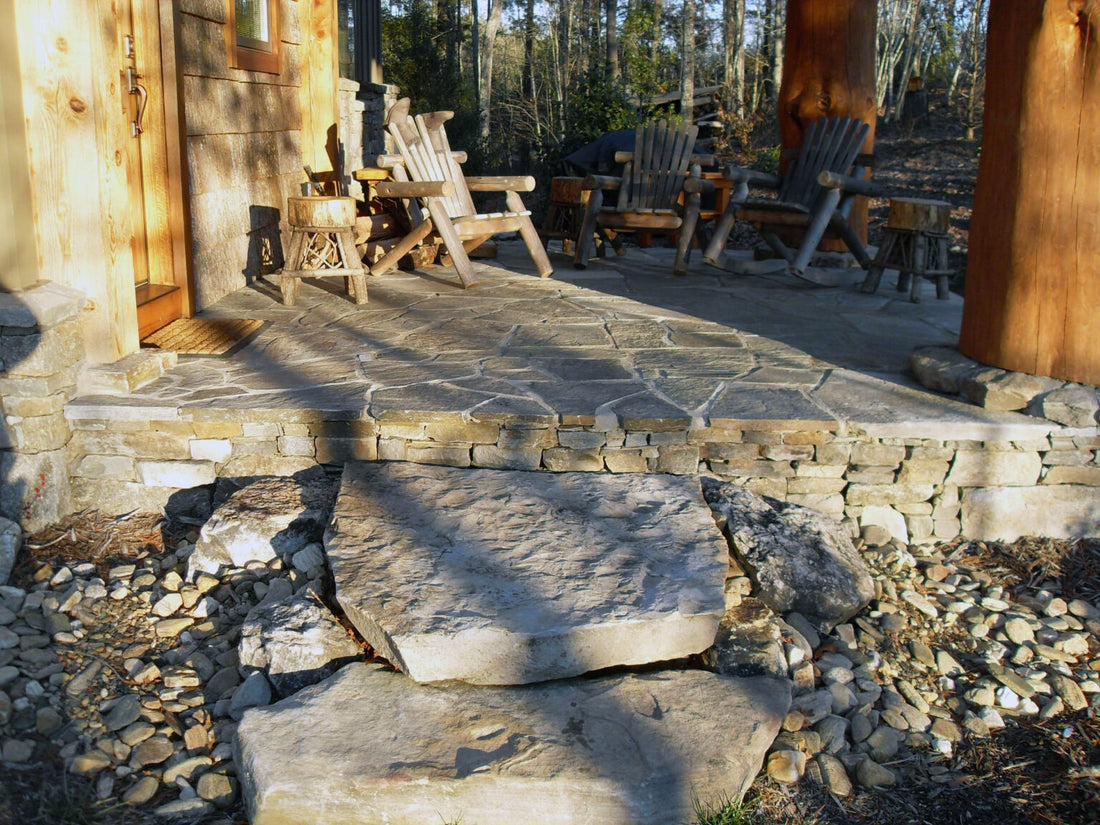What Are The Pros and Cons of Sealing Flagstone?
Flagstone, with its natural beauty and rustic charm, is a popular choice for patios, walkways, and other outdoor spaces. However, like any natural stone, it requires proper maintenance to ensure its longevity and aesthetic appeal. Sealing flagstone is a common practice, but it's crucial to weigh the pros and cons before making a decision.
Pros of Sealing Flagstone
- Protection from Weathering: Sealing creates a barrier against water, preventing moisture from penetrating the stone and causing damage from freezing and thawing cycles. This significantly extends the lifespan of your flagstone.
- Stain Resistance: Sealed flagstone is more resistant to stains from oil, grease, wine, and other spills. This makes cleaning and maintenance much easier, especially in high-traffic areas.
- Enhanced Appearance: Sealing can enhance the natural color and texture of the flagstone, giving it a richer, more vibrant look. It can also help to even out the color variations between stones.
- Easier Cleaning: Cleaning sealed flagstone is significantly easier. Spills and dirt can be wiped away more readily, reducing the need for harsh cleaning agents.
- Weed Prevention: Sealing can help prevent weeds from growing in the gaps between flagstones, reducing maintenance needs.
Cons of Sealing Flagstone
- Cost: Sealing flagstone requires purchasing a sealer and may involve professional installation, adding to the overall cost of your project.
- Time Commitment: Sealing requires preparation and application time, and depending on the size of the area, it can be a fairly lengthy process.
- Potential for Damage: Improper sealing can damage the flagstone, causing discoloration or other issues. It’s crucial to use the right type of sealer and apply it correctly.
- Regular Resealing: Most sealers will require resealing every few years, depending on the type of sealer, weather conditions, and foot traffic. This adds to long-term maintenance costs and time commitment.
- Altered Appearance: While sealing can enhance appearance, some sealers can alter the look of the flagstone, making it appear less natural or even shiny, which may not be aesthetically pleasing to everyone.
- Potential for Staining (with some sealers): Some sealers can darken the flagstone, while others can create a different color depending on the surface.
Choosing the Right Sealer
The type of sealer you choose will significantly impact the results. There are several different types available, each with its pros and cons:
- Penetrating Sealers: These sealers absorb into the stone, protecting it from within. They generally provide good protection and don't alter the appearance significantly.
- Topical Sealers: These create a film on the surface of the stone, offering more protection but potentially altering the look of the flagstone.
Conclusion
Whether or not to seal flagstone depends on several factors including your budget, the level of protection needed, and your aesthetic preferences. Weighing the pros and cons carefully will help you make an informed decision that best suits your needs. If you are unsure, consulting with a professional stone mason or landscaping company is always recommended.

